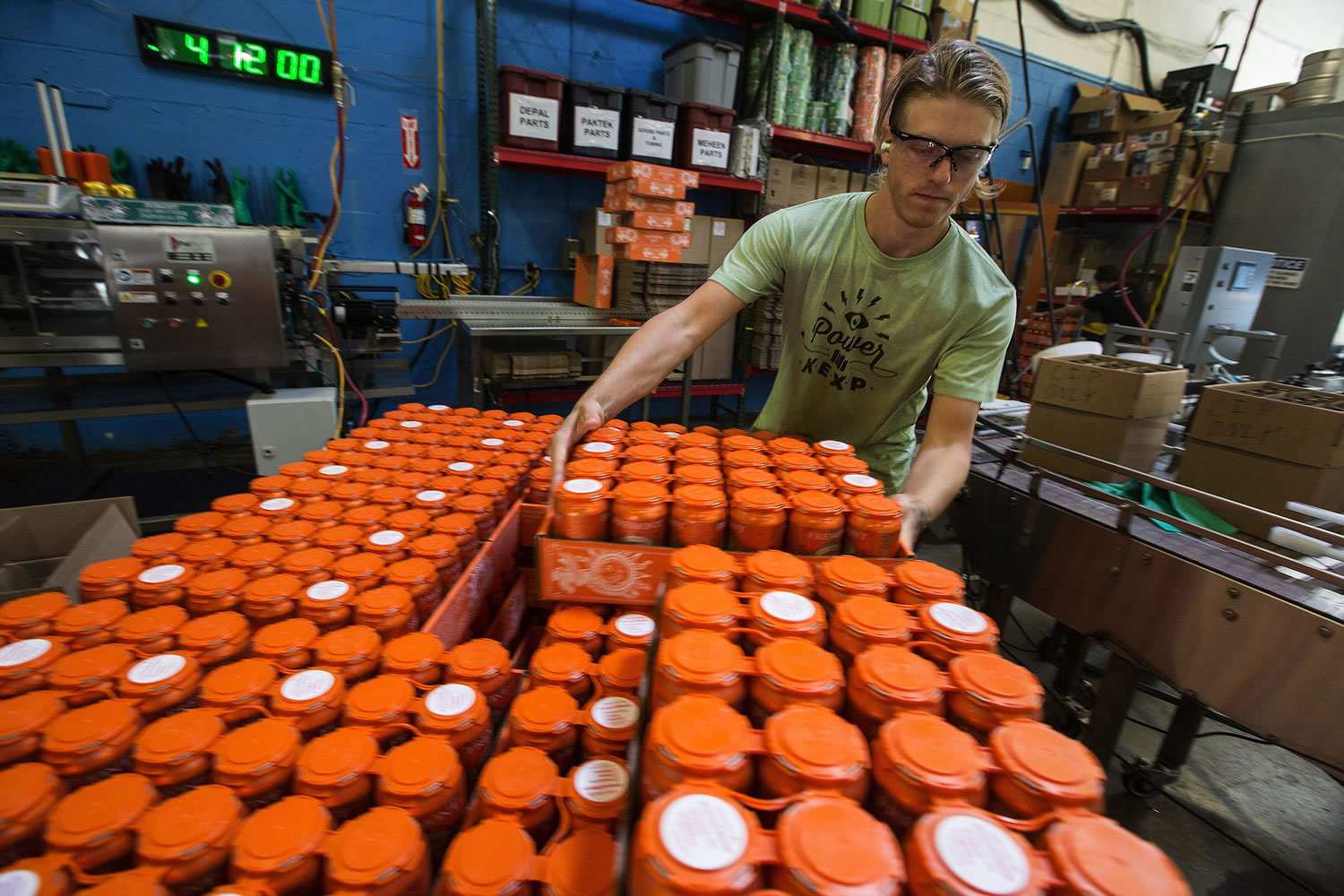SEATTLE — Fans of Seattle’s Fremont Brewing know the picnic tables and beer barrels that line the brewery’s front facade, perfect for knocking back a cold one on a hot summer day.
But they don’t see behind closed doors into the world of production, where beer cans are filled and capped on an assembly line in the back of the brewery. And with every barrel of beer the brewery churns out, excise taxes get funneled to the government.
For each of the 18,000 barrels Fremont produced last year, $7 went to the federal government. That’s $126,000 annually — a number that will rise as the company opens a larger facility. Beer production will begin there in 2016, said co-founder Sara Nelson.
Now there are competing proposals in Congress to significantly cut the federal excise tax — or eliminate it altogether — depending on the size of the brewery.
Any of the options would mean enough savings for Fremont Brewing to hire another employee and buy one more fermenter for beer production. “It’s significant,” said Nelson. “It’s not small potatoes.”
But it’s unclear which, if any, of the proposals might become law. And lawmakers are stuck trying to appease even a group representing the largest of breweries, which says it would be unfair not to pass the tax cut on to them.
The craft-beer industry has been growing since home-brewing was legalized federally in 1978. Sierra Nevada Brewing and Boston Beer started with experiments at home before producing for a larger audience.
Small breweries are big business in Washington state. In 2014, the state had 256 craft breweries, the second-highest total in the country. That’s up from 136 in 2011, according to the Brewers Association.
Currently, brewers pay a federal excise tax of $7 per barrel for the first 60,000 barrels and $18 per barrel for 60,001 and above.
Small breweries have complained the excise tax hinders their ability to expand. Although large breweries make a larger profit, they also bear a much larger tax burden because excise taxes are based on barrels produced.
Under one proposal, brewers making fewer than 2 million barrels annually would pay $3.50 for the first 60,000 and $16 for the rest. Another plan would base tax cuts on the barrels produced, with the smallest of breweries — those that produce up to 7,143 barrels a year — paying no excise tax, and the rate increasing after that.
Compromise legislation has been introduced that would cut taxes in half for the first 60,000 barrels and reduce the tax for even the largest of breweries — those making more than 2 million barrels annually — and distilleries, wineries and vintners. That bill was the result, in part, of a group representing some of the largest brewers (Anheuser-Busch InBev and MillerCoors) crying foul when lawmakers proposed cutting taxes only for their smaller competitors.
A brewer that produces 60,000 or fewer barrels could increase cash flow with the tax cut, and larger breweries may be able to add jobs and increase investment with the extra money, said Andy Thomas, CEO of Craft Brew Alliance.
The smallest brewers would see those taxes cut at least in half, which is significant, said Jim McGreevy, CEO of the Beer Institute.
But breaking down the legislation means understanding that the size of breweries can be as varied as the beers on tap at a local bar, and that is sparking disagreement.
“I think the 2 million is much too high,” said Mike Hale, president of Hale’s Ales, which produced 11,000 barrels of beer last year. He said 100,000 barrels should be the limit for tax cuts because small brewers wouldn’t necessarily have a thriving business and would need a financial break.



